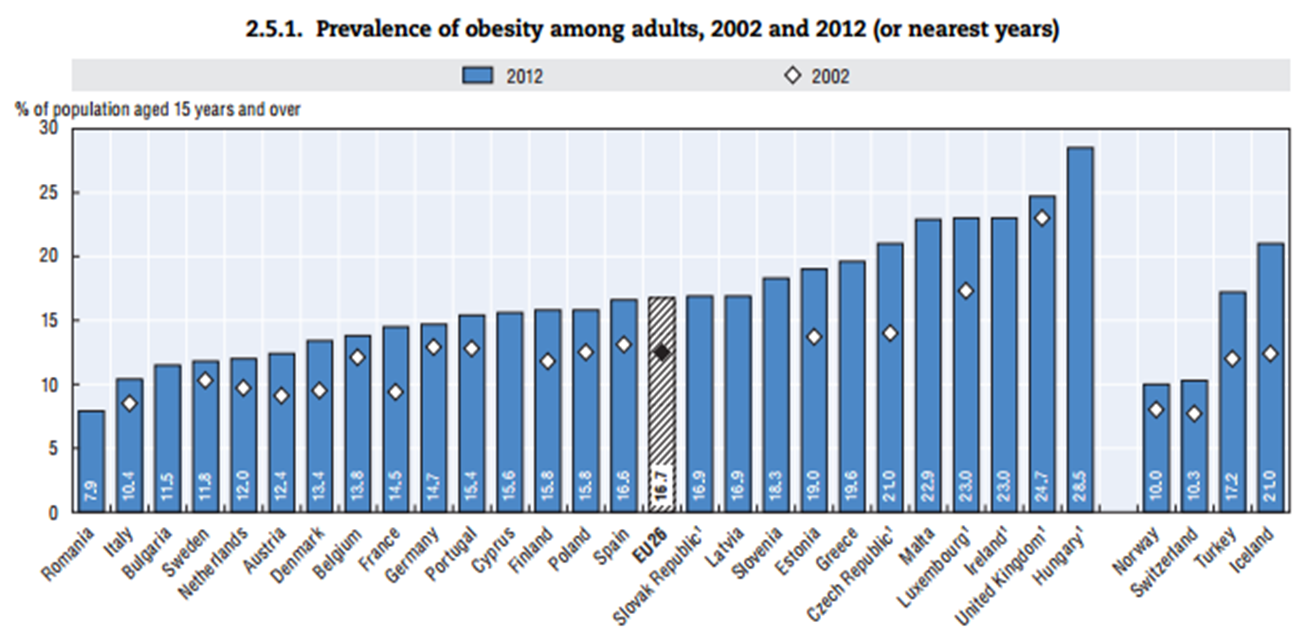Healthy Lifestyles Conference in Riga; will the EU get a C+ on childhood obesity?
With a few days to go before the High Level Conference on Healthy Lifestyles called by the Latvian Presidency, delegates and experts will be making their way to Riga to enjoy a glass of Kvass before discussions begin.
The industry, for its part, awaits the conference’s verdict(s) with baited breath. Will certain products be targeted? Will reformulation need a boost? The answers (or lack thereof) will be revealed on Monday 23rd of February.
In the meantime, let’s recap where the discussion on nutrition and physical activity currently stands….
Let’s begin the story in early 2014, at the High Level conference hosted by the Greek Presidency. The Hellenic crowd focused on non-communicable diseases (NCDs) among vulnerable populations including the elderly and, of course, children. Today, the Latvians have decided to hone the discussion down to the most important and most contentious of issues; one that Latvia’s Health Minister, Guntis Belēvičs, has described as the ‘taste of childhood’[1].
As is often the case with Council Presidencies, the decision to focus on childhood obesity reflects Latvia’s own public health aims. With obesity rates slightly above the European average[2], Latvia has implemented one of the most radical prevention schemes in the region. In 2006, the government limiting the distribution of foods containing additives, colourants, sweeteners and preservatives in schools, while also launching a National Sporting Development Program to increase physical activity among children[3].
But not all countries have endorsed the Latvian approach. With a wide variety of dietary styles and cultural particularities, defining a single, regionally applicable solution to obesity is all but simple. Nonetheless, the EU Action Plan on Childhood Obesity, drawn up under the Greek Presidency will be used as a solid common ground on which to base the discussions and will act as a ‘guide for effective action’[4].
By 2020, the plan aims to help Member States achieve 6 core objectives, each associated to a number of precise targets [5]:
- Support a healthy start in life
- Promote healthier environments, especially in schools
- Make the healthy option, the easier option
- Restrict marketing and advertising to children
- Inform and empower families
- Encourage physical activity
While the nominal purpose of the conference is to “assess the implementation progress of strategic documents on nutrition and physical activity in the EU”, measuring success will be done in true EU style. To avoid any pointing of fingers at high or low achievers, the agenda of the High Level Conference[6] will focus on sharing best practice among member states – in full respect of subsidiarity and proportionality. We expect much chit chat on who did what and very little practical information.
However, some data does exist and it looks like Europe isn’t doing too badly. The WHO’s country reports reveal that 100% of Member States have adopted policies limiting the marketing of food and beverages to children and over 90% have acted on salt reduction[7]. They’ll need to work a little harder on trans-fat reductions and physical activity recommendations, but there is reason to believe that Europe is moving in the right direction. The 2014 Health at a Glance report also noted that education to consumers, availability of healthy food options and encouraging physical activity are the strongest areas of progress[8].
Now one question remains: will current progress be enough? What further recommendations can be expected? In line with the Global Status of NCDs Report[9], it is likely that the WHO will demand stronger political engagement towards encouraging physical activity. This may happen through social marketing and mass media campaigns. Other recommendations could focus on the re-activation of the fruit and milk scheme, recently suspended by the Juncker Commission under its new Work Programme. Only time will tell…
Either way, we expect that the High Level Conference will directly influence the EPSCO preparatory meetings and the final Council Conclusions later this year. If we were academics we would ask… To what extent? Well, to the extent that scientific opinion is taken into account in EU policy making. While experts will likely call for the need for social involvement programmes of adequate dietary guidelines and of perfectly nutritious school meals, country budgets will still be limited, political and cultural approaches to food will still diverge and in the end… humans will be humans… and we do love our culinary delights!`
Our policy analysis on the conference will be coming soon … watch this space!
Alessia Mortara, Adriano Addis and Lindsay Hammes
[1] https://www.theparliamentmagazine.eu/articles/opinion/latvian-presidency-will-promote-healthy-lifestyle
[2] http://ec.europa.eu/health/reports/docs/health_glance_2014_en.pdf
[3] http://www.who.int/fctc/reporting/party_reports/latvia_annex2_public_health_strategy_2011_2017.pdf
[4] http://gr2014.eu/sites/default/files/Nutrition%20and%20Physical%20Activity%20Press%20Release%202%20EN.pdf
[5] http://ec.europa.eu/health/nutrition_physical_activity/docs/childhoodobesity_actionplan_2014_2020_en.pdf
[6] https://eu2015.lv/images/Kalendars/VM/Draft_Agenda_100215_FINAL.pdf
[7] http://www.euro.who.int/__data/assets/pdf_file/0005/243419/Summary-document-28-MS-country-profile.pdf?ua=1
[8] http://ec.europa.eu/health/reports/european/health_glance_2014_en.htm
[9] http://www.who.int/nmh/publications/ncd-status-report-2014/en/
Find Out More
-
Are you fit for 2024? Communicating in a year of change
February 27, 2024




